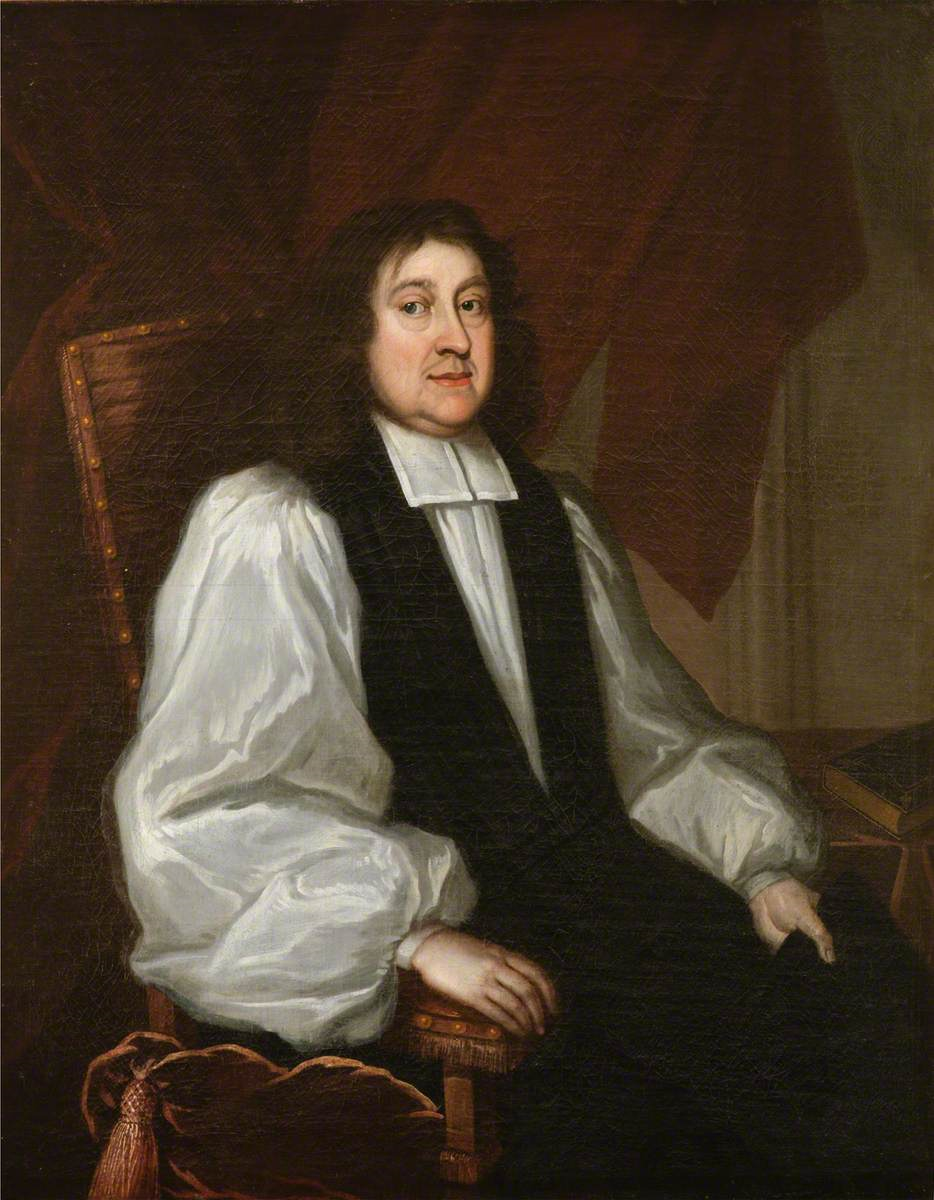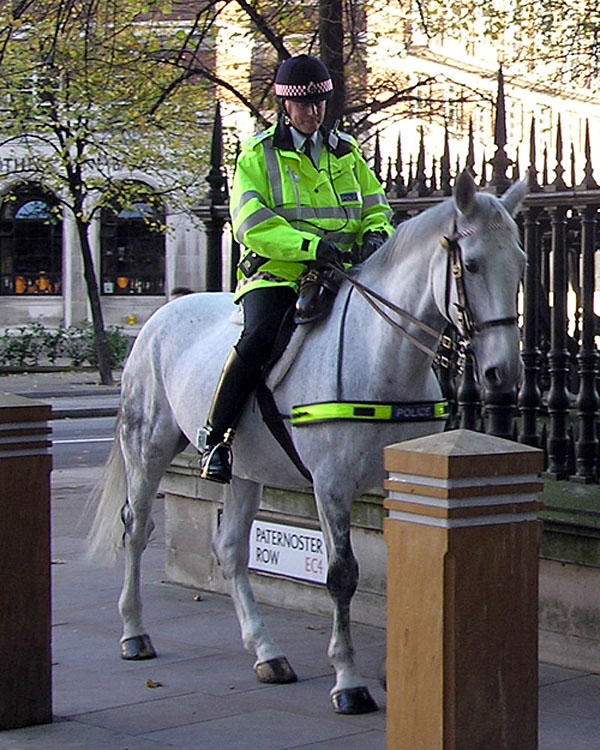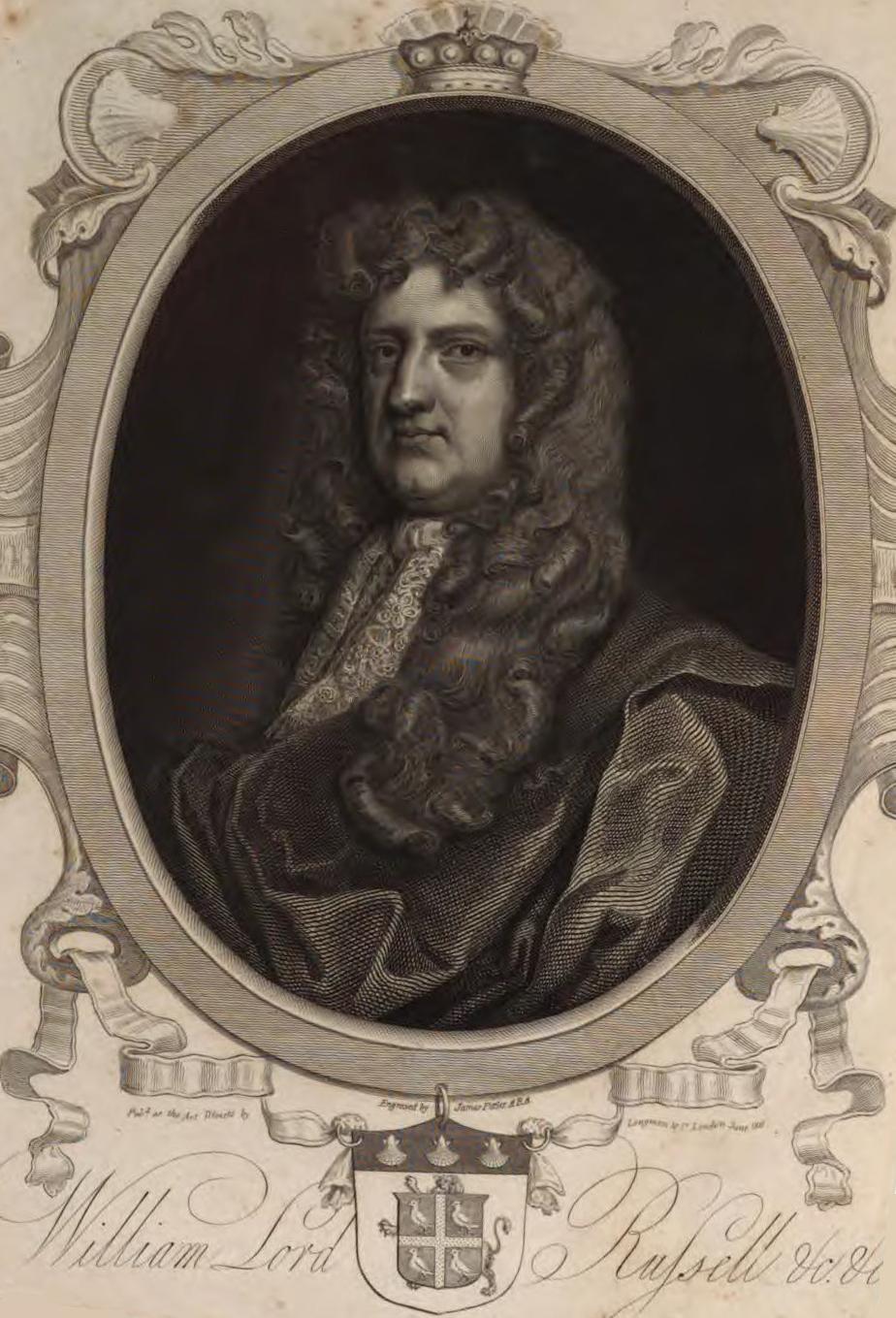|
Samuel Johnson (1649-1703)
Samuel Johnson (1649–1703) was an English clergyman and political writer, sometimes called "the Whig" to distinguish him from the author and lexicographer of the same name. He is one of the best known pamphlet writers who developed Whig resistance theory. Life From a humble background, Samuel Johnson was educated at St. Paul's School and Trinity College, Cambridge, and took orders. He attacked James, Duke of York in ''Julian the Apostate'' (1682). Johnson was illegally deprived of his orders, flogged, and imprisoned. He continued, however, his attacks on the Government by pamphlets, and did much to influence the public mind in favour of the Glorious Revolution of 1688. Dryden gave him a place in '' Absalom and Achitophel'' as "Benjochanan". After the Revolution he was restored to his orders and received a pension, but considered himself insufficiently rewarded by a deanery, which he declined. He was married for many years and suffered from many illnesses. The ''Julian'' ... [...More Info...] [...Related Items...] OR: [Wikipedia] [Google] [Baidu] |
Johnson Frontispiece 1689
Johnson is a surname of Anglo-Norman origin meaning "Son of John". It is the second most common in the United States and 154th most common in the world. As a common family name in Scotland, Johnson is occasionally a variation of ''Johnston'', a habitational name. Etymology The name itself is a patronym of the given name ''John (first name), John'', literally meaning "son of John". The name ''John'' derives from Latin ''Johannes'', which is derived through Greek language, Greek ''Iōannēs'' from Hebrew ''Yohanan'', meaning "Yahweh has favoured". Origin The name has been extremely popular in Europe since the Christian era as a result of it being given to St John the Baptist, St John the Evangelist and nearly one thousand other Christian saints. Other Germanic languages * Swedish language, Swedish: Johnsson, Jonsson * Icelandic language, Icelandic: Jónsson See also * List of people with surname Johnson *Gjoni (Gjonaj) *Ioannou *Jensen (surname), Jensen *Johansson *Johns ( ... [...More Info...] [...Related Items...] OR: [Wikipedia] [Google] [Baidu] |
Thomas Long (writer)
Thomas Long (1621–1707) was an English clergyman and writer on Church politics. He spent almost all of his life in Exeter. Life He was educated at Exeter College, Oxford, where he graduated B.A. in 1642. He was prebendary of Exeter from 1600 to 1701. Writings In 1678 he attacked the late John Hales, incidentally taking a swipe at Andrew Marvell. After the Glorious Revolution he wrote from the Whig perspective, in ''A Resolution of Certain Queries'' (1689), advocating submission to the new government. He replied, however, to John Locke's ''A Letter Concerning Toleration'' (1689), by writing like Jonas Proast, a High Church critique of Locke’s advocacy of religious toleration. After the 1690 republication of ''Eikonoklastes'', he entered the controversy over the authorship of the ''Eikon Basilike'', writing against Anthony Walker and supporting Richard Hollingworth. John Kenyon, ''Revolution Principles'' (1977) p. 67. He also attacked the Unitarian tract ''The Naked Gospel'' ... [...More Info...] [...Related Items...] OR: [Wikipedia] [Google] [Baidu] |
1649 Births
Events January–March * January 4 – In England, the Rump Parliament passes an ordinance to set up a High Court of Justice, to try Charles I for high treason. * January 17 – The Second Ormonde Peace concludes an alliance between the Irish Royalists and the Irish Confederates during the War of the Three Kingdoms. Later in the year the alliance is decisively defeated during the Cromwellian conquest of Ireland. * January 20 – Charles I of England goes on trial, for treason and other "high crimes". * January 27 – King Charles I of England, Scotland and Ireland is found guilty of high treason in a public session. He is beheaded three days later, outside the Banquet Hall in the Palace of Whitehall, London. * January 29 – Serfdom in Russia begins legally as the Sobornoye Ulozheniye (, "Code of Law") is signed by members of the Zemsky Sobor, the parliament of the estates of the realm in the Tsardom of Russia. Slaves and free peasants are con ... [...More Info...] [...Related Items...] OR: [Wikipedia] [Google] [Baidu] |
Gilbert Burnet
Gilbert Burnet (18 September 1643 – 17 March 1715) was a Scottish philosopher and historian, and Bishop of Salisbury. He was fluent in Dutch, French, Latin, Greek, and Hebrew. Burnet was highly respected as a cleric, a preacher, an academic, a writer and a historian. He was always closely associated with the Whig party, and was one of the few close friends in whom King William III confided. Early life: 1643–1674 Burnet was born at Edinburgh, Scotland, in 1643, the son of Robert Burnet, Lord Crimond, a Royalist and Episcopalian lawyer, who became a judge of the Court of Session, and of his second wife Rachel Johnston, daughter of James Johnston, and sister of Archibald Johnston of Warristoun, a leader of the Covenanters. His father was his first tutor until he began his studies at the University of Aberdeen, where he earned a Master of Arts in Philosophy at the age of thirteen. He studied law briefly before changing to theology. He did not enter into the ministry at that ... [...More Info...] [...Related Items...] OR: [Wikipedia] [Google] [Baidu] |
York
York is a cathedral city with Roman origins, sited at the confluence of the rivers Ouse and Foss in North Yorkshire, England. It is the historic county town of Yorkshire. The city has many historic buildings and other structures, such as a minster, castle, and city walls. It is the largest settlement and the administrative centre of the wider City of York district. The city was founded under the name of Eboracum in 71 AD. It then became the capital of the Roman province of Britannia Inferior, and later of the kingdoms of Deira, Northumbria, and Scandinavian York. In the Middle Ages, it became the northern England ecclesiastical province's centre, and grew as a wool-trading centre. In the 19th century, it became a major railway network hub and confectionery manufacturing centre. During the Second World War, part of the Baedeker Blitz bombed the city; it was less affected by the war than other northern cities, with several historic buildings being gutted and restore ... [...More Info...] [...Related Items...] OR: [Wikipedia] [Google] [Baidu] |
Paternoster Row
Paternoster Row was a street in the City of London that was a centre of the London publishing trade, with booksellers operating from the street. Paternoster Row was described as "almost synonymous" with the book trade. It was part of an area called St Paul's Churchyard. The street was devastated by aerial bombardment during the World War II. In 2003 the street was replaced with Paternoster Square, the modern home of the London Stock Exchange, although a City of London Corporation road sign remains in the square near where Paternoster Row once stood. As far back as the 12th century, the road was known as Paternoster Row, as it was the main place in London where Paternoster beads were made by skilled craftsmen. The beads were popular with illiterate monks and friars at the time, who prayed 30 Paternoster prayers (Latin for "Our Father") three times a day as a substitute for the 150 psalms recited a day by literate monks. Name The street is supposed to have received its name from ... [...More Info...] [...Related Items...] OR: [Wikipedia] [Google] [Baidu] |
Strand, London
Strand (or the Strand) is a major thoroughfare in the City of Westminster, Central London. It runs just over from Trafalgar Square eastwards to Temple Bar, where the road becomes Fleet Street in the City of London, and is part of the A4, a main road running west from inner London. The road's name comes from the Old English ''strond'', meaning the edge of a river, as it historically ran alongside the north bank of the River Thames. The street was much identified with the British upper classes between the 12th and 17th centuries, with many historically important mansions being built between the Strand and the river. These included Essex House, Arundel House, Somerset House, Savoy Palace, Durham House and Cecil House. The aristocracy moved to the West End during the 17th century, and the Strand became known for its coffee shops, restaurants and taverns. The street was a centre point for theatre and music hall during the 19th century, and several venues remain on the St ... [...More Info...] [...Related Items...] OR: [Wikipedia] [Google] [Baidu] |
Exeter Exchange
The Exeter Exchange (signed and popularly known as Exeter Change) was a building on the north side of the Strand in London, with an arcade extending partway across the carriageway. It is most famous for the menagerie that occupied its upper floors for over fifty years, from 1773 until the building was demolished in 1829. Its first century Exeter Exchange was built in 1676, on the site of the demolished Exeter House (also known as Burghley House and Cecil House, following the naming conventions of British aristocracy), London residence of the Earls of Exeter. Around the same time, the nearby Burleigh Street and Exeter Street were laid out. The Exeter Exchange originally housed small shops (milliners, drapers, hosiers) on the ground floor, and rooms above which were let to the Land Bank. Over time, the traders on the ground floor were replaced by offices, and the upper rooms were used for storage. The management began to re-purpose the upper rooms. In April 1770, Giovanni ... [...More Info...] [...Related Items...] OR: [Wikipedia] [Google] [Baidu] |
Magna Carta
(Medieval Latin for "Great Charter of Freedoms"), commonly called (also ''Magna Charta''; "Great Charter"), is a royal charter of rights agreed to by King John of England at Runnymede, near Windsor, on 15 June 1215. First drafted by the Archbishop of Canterbury, Cardinal Stephen Langton, to make peace between the unpopular king and a group of rebel barons, it promised the protection of church rights, protection for the barons from illegal imprisonment, access to swift justice, and limitations on feudal payments to the Crown, to be implemented through a council of 25 barons. Neither side stood behind their commitments, and the charter was annulled by Pope Innocent III, leading to the First Barons' War. After John's death, the regency government of his young son, Henry III, reissued the document in 1216, stripped of some of its more radical content, in an unsuccessful bid to build political support for their cause. At the end of the war in 1217, it formed part of the pe ... [...More Info...] [...Related Items...] OR: [Wikipedia] [Google] [Baidu] |
William Russell, Lord Russell
William Russell, Lord Russell (29 September 163921 July 1683) was an English politician. He was a leading member of the Country Party, forerunners of the Whigs, who during the reign of King Charles II, laid the groundwork for opposition in the House of Commons to the accession of an openly Catholic king in Charles's brother James. This ultimately resulted in Russell's execution for treason, almost two years before Charles died and James acceded to the throne. Early life and marriage Born Hon. William Russell, he was the third son of William Russell, 5th Earl of Bedford, later created Duke of Bedford, and Lady Anne Carr. After the death of his elder brother Francis (1638–1679), he gained the courtesy title of Baron Russell and was thus referred to as Lord Russell. He and Francis were at Cambridge University in 1654. They then travelled abroad, visiting Lyon and Geneva, residing for a time at Augsburg. Russell's account makes for a colourful depiction of his travels. The tw ... [...More Info...] [...Related Items...] OR: [Wikipedia] [Google] [Baidu] |
Samuel Johnson, A History And Defence Of Magna Charta (1st Ed, 1769, Title Page)
Samuel ''Šəmūʾēl'', Tiberian: ''Šămūʾēl''; ar, شموئيل or صموئيل '; el, Σαμουήλ ''Samouḗl''; la, Samūēl is a figure who, in the narratives of the Hebrew Bible, plays a key role in the transition from the biblical judges to the United Kingdom of Israel under Saul, and again in the monarchy's transition from Saul to David. He is venerated as a prophet in Judaism, Christianity, and Islam. In addition to his role in the Hebrew scriptures, Samuel is mentioned in Jewish rabbinical literature, in the Christian New Testament, and in the second chapter of the Quran (although Islamic texts do not mention him by name). He is also treated in the fifth through seventh books of ''Antiquities of the Jews'', written by the Jewish scholar Josephus in the first century. He is first called "the Seer" in 1 Samuel 9:9. Biblical account Family Samuel's mother was Hannah and his father was Elkanah. Elkanah lived at Ramathaim in the district of Zuph. His genealo ... [...More Info...] [...Related Items...] OR: [Wikipedia] [Google] [Baidu] |
Passive Obedience
Passive obedience is a religious and political doctrine, which states that people have a moral duty to obey the law, in particular accepting punishment as part of this obedience. George Berkeley The most notable publication describing this doctrine was Bishop George Berkeley's ''A Discourse on Passive Obedience'' (1712). The tract is considered Berkeley's major contribution to moral and political philosophy. In ''A Discourse on Passive Obedience'', Berkeley defends the thesis that people have "a moral duty to observe the negative precepts (prohibitions) of the law, including the duty not to resist the execution of punishment."Hayry, Matti. "Passive Obedience and Berkeley's Moral Philosophy." Berkeley Studies 23 (2012): 3-13. Web However, Berkeley does make exceptions to this sweeping moral statement, stating that we need not observe precepts of "usurpers or even madmen" and that people can obey different supreme authorities if there are more than one claims to the highest autho ... [...More Info...] [...Related Items...] OR: [Wikipedia] [Google] [Baidu] |





.jpg)

.jpg)

